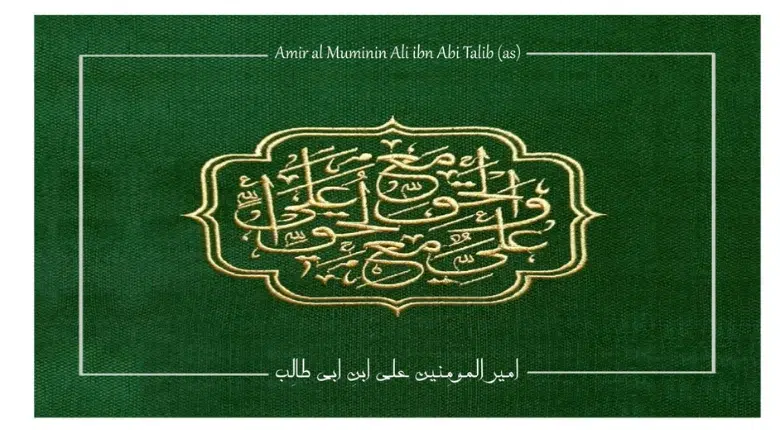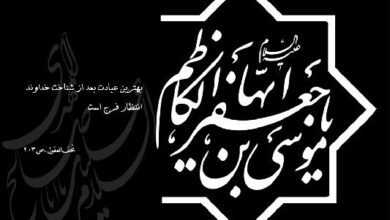
Amir al Muminin Ali ibn Abu Talib (as), is unique among leaders. Many non-Muslims have produced hundreds of books and research papers about him, praising his personality and distinctive features. Imam Ali (peace be upon him) was raised by the Messenger of Allah (PBUH) under his care and exalted to such a level that he is Islam’s gift to humanity.
Unique Leader Amir al Muminin Ali ibn Abi Talib (as)
Humanity has had numerous leaders. Many of these leaders became leaders via power or inheritance, while others were selected for their exceptional skills. Some leaders in the latter category have inspired and motivated generations of people with their lives, deeds, and words.
Amir al Muminin Imam Ali (as) illuminated hitherto unknown areas of human life. He was born and martyred in Allah’s House (Ka”ba) and lived his life to please Allah. Thus, any study of Imam Ali’s (peace be upon him) life and personality would reveal a trait that may inspire truth-seekers, Muslim or not.
Amir al Muminin From Birth to Islam’s Dawn:
Amir al Muminin Ali Ibn Abu Talib ibn Mutallib and Fatima bint Asad ibn Hashim were Ali’s parents. He was born 30 years after Amal-Fil on the 13th Rajab. His life began at the Holy Kaba, the Muslim Qiblah, and concluded in the Mosque of Kufa (Iraq). The Prophet of Allah was raised on his lap by Allah from birth. Famine hit Mecca and Quraysh. Muhammad (peace be upon him and his holy offspring) met his wealthy paternal uncle Abbas and asked him to support Abu Talib (S.A.) by guarding some of his children.
Abbas agreed, and they told Abu Talib (S.A.) their plan. Abu Talib (S.A.) said: “Leave Aqil for me…” Muhammad selected Ali, while Abbas chose Ja’far. “I picked the one Allah had chosen for me,” the Prophet (PBUH) declared afterward.
Some commentators believe that the Prophet (PBUH) accepted Amir al Muminin Ali’s (peace be upon him) guardianship to repay Abu Talib and Fatima (Ali’s parents), who raised him like their own children. However, given the Prophet’s (PBUH) words and Ali’s (A.S.) behavior, it is apparent that Allah wanted Ali to grow up with the Holy Prophet (PBUH) and under his tutelage.
When Muhammad (PBUH) announced his prophethood, he was molding Ali (A.S.). Ali (A.S.) was the first male Muslim, according to most historians. Ali (A.S.) was the only student of the Prophet (PBUH) who never bowed or worshipped idols.
His sincerity, constancy, sacrifice, and bravery in supporting “Touhid” were unquestionable.
From the Dawn of Islam through the Prophet’s (PBUH) Demise:
In Arabia, which was plagued by ignorance (Jahiliyaht) and superstitions, Islam changed the course of history and affected other nations and peoples. Islam condemned community conflicts, burying infant girls alive, and other barbaric practices.
The Prophet (PBUH) and his followers, especially Ali (A.S.), struggled for years to modify society and individual ideas and habits. He was Islam’s greatest gift to humanity. Imam Ali’s (A.S.) role in Islam’s founding requires a large book, but we’ll simply examine a few here.
Important Mecca events of the life of Amir al Muminin
Yom al-Anzar
After the passage “… and warn your nearest kin,” Allah ordered the Prophet (PBUH) to invite people to Islam. He summoned his family and requested Ali (A.S.) to cook. After lunch, he openly declared his prophethood and asked, “Which one of you would assist me in my mission to be my brother, successor, and caliph?” The Prophet (PBUH) named Ali (A.S.) his successor and caliph.
Laylatul Hijrat:
Despite Quraysh’s attempts, “Yasreb” adopted Islam and promised to defend it with their swords. The Quraysh held an emergency meeting to murder the Prophet (S.A.W.) after hearing this news. After discovering this conspiracy, the Prophet (PBUH) asked Amir al Muminin Ali (A.S.) to wear his cloak and sleep in his place 7 to thwart the enemies of Islam and help him migrate from Mecca to Medina.
After this incident, Jibrail (A.S.) said, “O” son of Abu Talib, there is none like you; Allah boasts to the angels of the seven heavens about you!”
Medina Events of the Life of Amir al Muminin
Islam’s ups and downs began following the prophet’s (PBUH) journey to Medina. Following the prophet’s (PBUH) migration, Ali (A.S.) had a major part in the following events:
- Amir al Muminin Ali and Fatima’s marriage
After the prophet’s journey, Imam Ali (A.S.) brought Hazrat Fatima (S.A.), the Prophet’s cherished daughter, to Medina. Ali (A.S.) married Fatima (S.A.) months later. Muslim historian Ya`qubi writes:
“Muhajers” (Mecca-to-Medina migrants) suggested to Fatima (S.A.). They objected to her marriage to Ali (A.S.). “I did not marry Fatima to Ali, but it was Allah Who wedded her to Ali,” the Prophet of Allah (PBUH) replied to their arguments. 9 Fatima (S.A.) and Ali (A.S.) are the prophet’s lineage.
- Brotherhood with Muhammad (PBUH)
The Prophet (PBUH) ordered couples of Muhajers and Ansars to sign brotherhood pacts to bring them closer. “You are my brother, successor, and inheritor and I inherit from you,” he told Imam Ali (A.S.).
- The prophet (PBUH) describes Ali’s Shahadat.
In the second year of Hejira, the Prophet (PBUH) despatched Ali (A.S.) and Ammar to the Battle of Zat ol-Ashira. The Prophet (PBUH) discovered them sleeping after a while. “Should I enlighten you about the two most unhappy persons of all?” he said after waking them up. After their affirmative answer, he added: “The guy who slew Saleh’s camel and the one who will smack you (Ali) in the head and make your blood run to your beard.”
Amir al Muminin’s Battle Bravery
Except for the Battle of Tabuk, in which the prophet (PBUH) ordered Ali (A.S.) to stay in Medina, he had actively engaged in all the fights and played a vital role. We’ll try to examine Ali’s (A.S.) role in a few battles.
- Ali was unique in the Battle of Badr. Some historians say he slaughtered 32 enemies alone. When Ali (A.S.) was forced to accept the caliphate 33 years later, Quraysh like Sa`id ibn-e Aas and Walid ibn-e Aqrabeh, who later fought him in Jamal and Siffin, were hesitant to swear allegiance because he had killed their fathers in Badr.
- Only Imam Ali (A.S.) never escaped the battlefield. During Uhud, Kheybar, and Hunayn, many of the Prophet’s (S.A.W.) close friends escaped.
- Imam Ali (A.S.) was assigned to transmit `Surat al-Bara”at’ to unbelievers after its revelation.
Before this companion reached Mecca, the Prophet (PBUH) dispatched Imam Ali (A.S.) to take the newly-revealed verse from him and personally deliver it to the infidels. “It was Allah”s will that it should be relayed through a member of my Household,” the Prophet (PBUH) said when they returned to Medina.
Ali judged Yemen in the Prophet’s (S.A.W.) last year
After the prophet (PBUH) moved to Medina from Mecca, Islam grew swiftly across the Arabian Peninsula, and Imam Ali (A.S.) was often sent by the prophet to promote Islam in other places.
The assignment no other buddy received is crucial. The Prophet of Allah (PBUH) invited Imam Ali (A.S.) to serve as a judge (qazi) in Yemen, a civilized culture, at the end of his life. Imam Ali (A.S.) told the Prophet (S.A.W.): “I am young and do not know about judgment.”
The Prophet of Allah (S.A.W.) prayed: “O Allah! Help him think and speak.” Belazari quotes Imam Ali (A.S.): “I swear by Allah that I have never been in doubt while pronouncing a judgement amongst the contending parties.”
The caliphs, especially the second caliph, often sought Ali’s (A.S.) advice after the prophet’s (PBUH) death.
Ghadir-e-Khum
Sunni and Shia” sources have recounted several occurrences that demonstrate Imam Ali’s (A.S.) rank. “Ghadir-e-Khom” is one of the most significant events. On his return from Hajjatul-Vida at `Ghadir-e-Khom, the Prophet (PBUH) gave a very significant lecture and requested the crowd:
O, folks! Is it not true that my “Vilayat” over you (believers) is more important than yours over yourselves?” People replied yes.
“Ali is his Master,” the Prophet (PBUH) said. O Allah! Love him who loves Ali and hates his opponent…”
The Prophet (PBUH) also addressed other significant issues at Ghadir-e-Khom, emphasizing the Islamic relevance of Imamate and Vilayat. His crucial announcement:
O, folks! I’m leaving. We’ll meet at Kausar. I’ll inquire about two valuable goods (Saqalayn). After my death, handle these two carefully.”
Then they asked the Prophet (PBUH) about the “two precious items.”
“One of them is the Qur’an—one end is in Allah’s Hand and the other is in yours,” the Prophet (PBUH) said. To avoid being misled, cling to it. Second, is my Pure Household.”
Many people congratulated Ali (A.S.) after the prophet’s (PBUH) discourse. Others struggled with uncertainty. However, trustworthy Islamic sources have recorded this episode and passed it down via various Shi” and Sunni lines of transmission.




